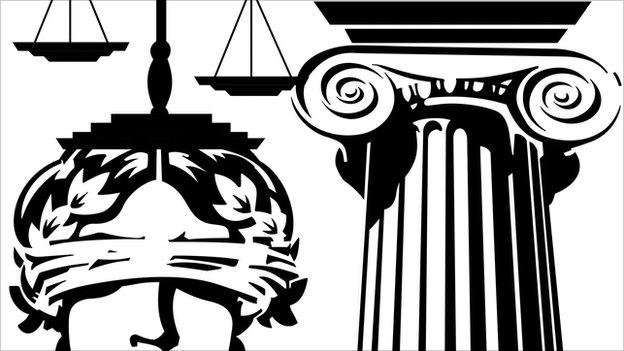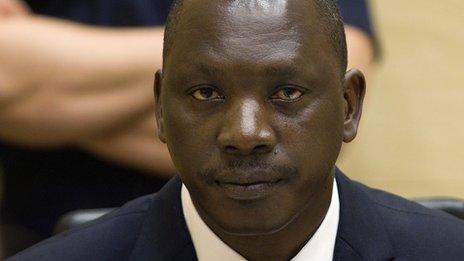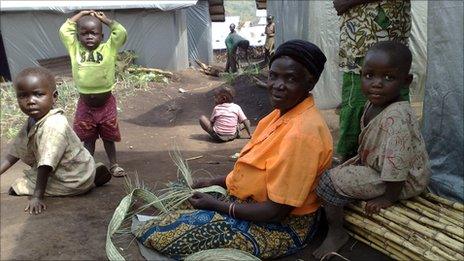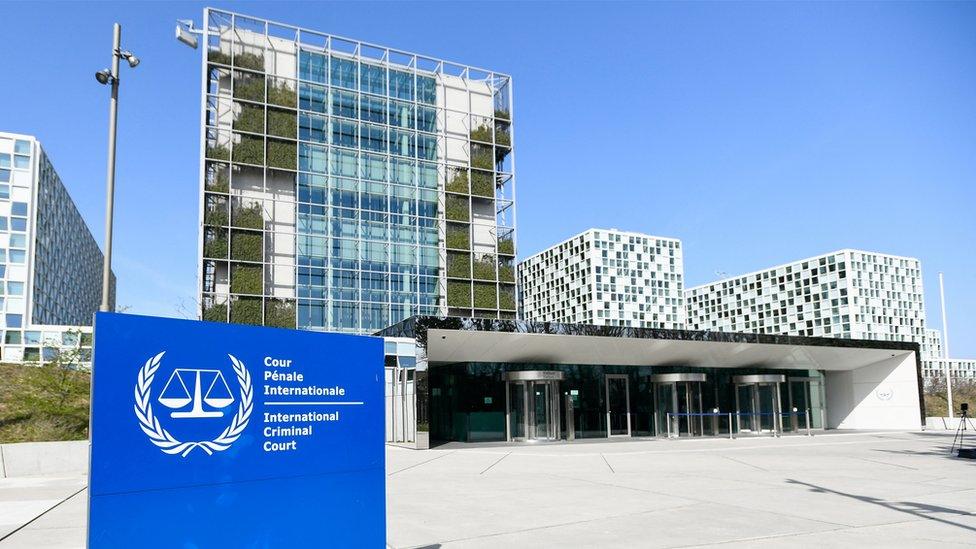Meeting Lubanga
- Published
- comments
Nine years ago the BBC's Andrew Harding reported on the plight of child soldiers in the Democratic Republic of Congo.
I was lying under a bed, in a priest's house in the centre of Bunia, in the eastern Democratic Republic of Congo.
It was June 2003 and rival militia groups were trying to overrun the town, external. I could hear shooting, getting closer, on three sides of the building. A few bullets hit the walls.
"Just kids," said the Belgian priest, Father Jo, who was still striding cheerfully around his garden listening to sounds of approaching conflict.
And they were just kids.
For months I had run into them at roadblocks around town - dull eyes, shoeless, automatic weapons slung on narrow shoulders - or on muddy jungle paths.
And I'd seen their victims, external - some their own age, often slashed with machetes.
'Small fish'
Nine years later, and the man who recruited - perhaps press-ganged is a better phrase - some of those child soldiers, Thomas Lubanga, has finally been found guilty by the ICC in The Hague.
I remember challenging Mr Lubanga about the age of his soldiers, at his headquarters in Bunia.
He insisted: "We have no child soldiers in our ranks - some of them look younger than they are."
He sought to portray himself as a sophisticated politician, rather than some rag-tag militia leader.
As we prepared to film him, his "chef de protocol" asked me which door we wanted Mr Lubanga to enter through, and then pointedly moved his chair away from the bullet holes on the wall behind.
The ICC trial of Mr Lubanga has been slow and complicated.
He is a relatively "small fish" on a continent where men with far more blood on their hands remain in hiding, or continue to enjoy impunity.
But with this verdict, and the upcoming judgement in the UN-backed trial of former Liberia leader Charles Taylor, a precedent has been set.
Here are links to some more of the reports I made at the time:
- Published14 March 2012

- Published10 July 2012

- Published27 April 2011

- Published7 February

